I think the first time I heard the perk mentioned was when a writer friend did a week-long workshop with my junior high language arts students. She said, “One of the best things about being a writer is that you can work in your pajamas.”
Quiet
Nerd Thrills
The Neuroscientist Who Lost Her Mind
Cruel April
The Stupendously Spectacular Spelling Bee
Y'all Come!
The invitation was universal. It covered tomorrow, next week, whenever you happen to be passing; covered you, your children, your elderly parents, your crazy Aunt Martha, your weird cousin Joe; covered with or without a specific invitation. I can hear it now from the door as we left the door of country people – or they left from ours. Now, I issue my own invitation to my remodeled website.
The Sun Does Shine
Antony Ray Hinton, in a memoir of his life in prison on death row for a crime he did not commit, begins his saga in The Sun Does Not Shinewhen he was twenty-nine years old and chronicles its ups and downs for twenty-seven years. The book is co-written with Lara Love Hardin with a foreword by Bryan Stevenson, best-selling author of Just Mercy.
A bad joke doesn’t show up until over half the book is finished, but its truth is there from the beginning. Question: “What does capital punishment mean?” Answer: “It means a guy without capital gets punished.”
With enough evidence to have cleared him from the beginning, including the verification that he had clocked in at work before the crime began and clocked out after it was over in a place too far away to have made the trip, he is convicted. Adding a competent attorney to that evidence should have cleared Ray to live a normal life, but he is poor and black in Alabama.
Written in a style that gives a feel that Ray is sitting across from you at the table over a cup of coffee (or several considering its length), he takes you to his small bare cell with less than most of us would consider essentials. Recounting a story that goes through a range of emotions, surprisingly including a fair batch of humor, leaves one wondering at the resilience of the human spirit. I will not spoil his story by relating his coping mechanisms that thread through and add interest to the memoir.
I recommend the book to anyone interested in justice and to those, like me, who have wondered how a human being could survive in what amounts to a small cage with little or nothing to do.
Dreams and Plans
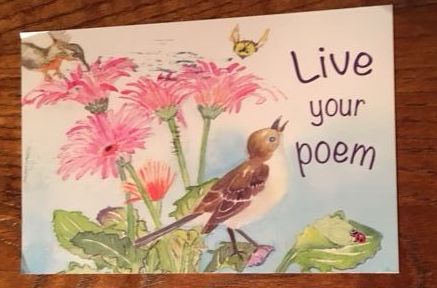 I got a postcard from a writer friend reminding me that this is poetry month. I wish I had her skilled way of turning words into poems. Compared to her and other real poets, I hesitate to even consider myself a part of that community, but I’m also claiming other advice I read last week. “Just because you aren’t making progress as fast as you think you should doesn’t mean you aren’t making any progress. Keep going.” With the second in mind, I’ll share my verse that reflects my writing expedition.
I got a postcard from a writer friend reminding me that this is poetry month. I wish I had her skilled way of turning words into poems. Compared to her and other real poets, I hesitate to even consider myself a part of that community, but I’m also claiming other advice I read last week. “Just because you aren’t making progress as fast as you think you should doesn’t mean you aren’t making any progress. Keep going.” With the second in mind, I’ll share my verse that reflects my writing expedition.
Dreams and Plans
If dreams and plans were paper and pen, I’d be a well-known writer.
But first:
Our children must be raised.
My school desk must be organized.
The day job papers must be graded.
Or could these be excuses to avoid rejection?
Fast forward:
Our children care for grandchildren.
My work desk settles into natural disorder.
No more new ungraded papers chase the old.
Rejection and acceptance come from daring to write and send.
The paper and pen I find more tangible than dreams and plans.
I think I’ll write . . . maybe tonight.
If you look at the postcard, you will see that I am doing part of it right. I’m living my poem.
Gods of Howl Mountain
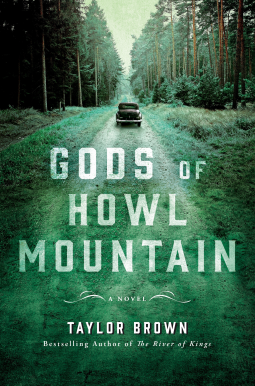 Having grown up in the foothills of Appalachia, I find myself attracted to books like Gods of Howl Mountain by Taylor Brown that are set in the region. The author collects the colorful parts of the region in his book set in 1950s North Carolina from the snake-handling preacher to the competing bootleggers and the house of prostitution.Be aware that the language and scenes fit the storyline.
Having grown up in the foothills of Appalachia, I find myself attracted to books like Gods of Howl Mountain by Taylor Brown that are set in the region. The author collects the colorful parts of the region in his book set in 1950s North Carolina from the snake-handling preacher to the competing bootleggers and the house of prostitution.Be aware that the language and scenes fit the storyline.
The central character, Rory Docherty, returns from the Korean War missing one leg to run whisky in an old Ford coupe and spend nights returning to the horrors of war in his dreams. He lives with his folk-healer grandmother since his mother is in a mental institution, not having spoken since a hidden tragedy some years before. To add to the mystery, he falls for the young daughter of the snake-handling preacher.
The writing fits the tradition of Appalachian writers with this sample describing getting ready to kill hogs. “She had the fire crackling and smoking as the dawn light broke jagged over the hills. Rory set the pot on the fire and began sloshing it full of water hand-pumped from the well. He carried two pails with each trip, the water quivering like silver discs as he rocked his way across the yard.” The killing itself is just as graphic, if not as lyrical.
The book will probably not educate you or make you a better person, but it may bring some surprising sympathy for the bootlegger or the grandmother who ran the house of ill repute. If you are a writer, it will certainly give a model of how to turn a phrase.
Home Remedy
 The more things change . . .
The more things change . . .
A few years ago, when I was seven or eight, a spider bit me behind my left knee right in the bending section. Swelling ensued bringing on severe pain and rendering the knee immobile. As the problem worsened from day to day, Mama soaked the area in Epsom Salts – her cure for anything that ailed us. If drunk in a solution with a quarter cup of water, Epsom Salts worked on digestive problems. Her cold medicine got the addition of an aspirin and a touch of baking soda – pretty much the contents of Alka-Seltzer if you look at the label.
Daddy and Mama's younger sister Ruth, who was at our house for the summer from college, nagged her to consider that my leg was not getting any better and take me to the doctor. (If you are wondering why Daddy didn't do this himself, his visual impairment prevented him from driving.) She didn’t give up until Daddy began to haul me around from place to place because I couldn’t walk. I knew things were serious when she gave in and took me to the good country doctor. He took a good look, agreed that it was a spider bite, and said, “If I were you, I would soak it in Epsom Salts water.” Mama told this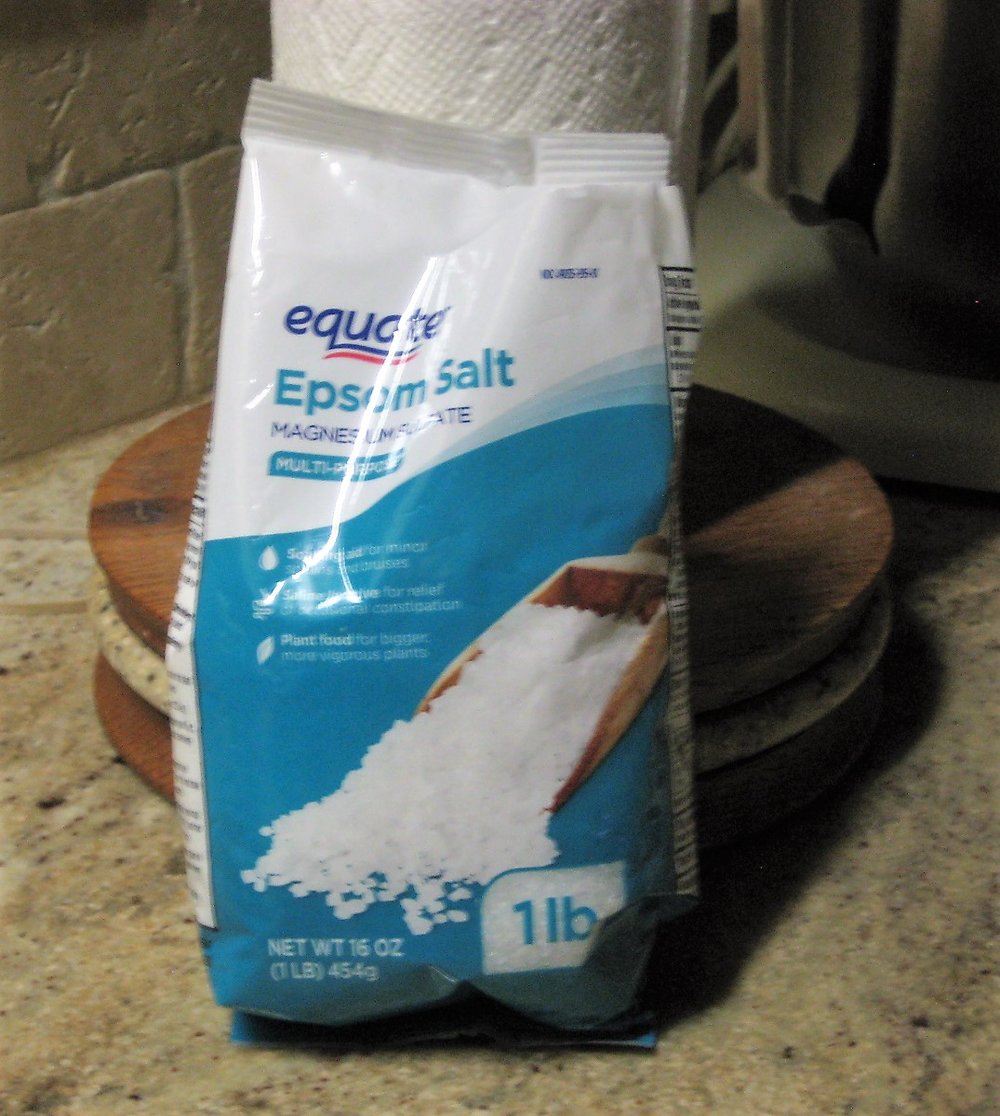 story more often than either Daddy or Aunt Ruth and with considerably more enthusiasm.
story more often than either Daddy or Aunt Ruth and with considerably more enthusiasm.
Al recently had an infection arise from less than skilled surgery on an ingrown toenail, and went for expert help from Suyon Rhee, Doctor of Podiatric Medicine. (I will spare you the gross pictures of what it looked like.) She skillfully used her surgical abilities and prescribed antibiotics to rid him of infection and finished with orders to soak the injured appendage twice a day in Epsom Salts water.
Like I said, “The more things change . . . ”
Alternate Side
 Anna Quindlen, one of my favorite authors, picks an unusual turning point in life as the setting for her novel Alternate Side. Nora and Charlie Nolan have lived out their marriage in a section of New York City on a dead-end block where neighbors shared secrets, troubles, and a handyman while jockeying for a spot in the small parking lot. Charlie finally gets his own parking space but restlessly continues to maneuver Nora to look for a place to live outside the city. Nora’s satisfying but not demanding job and their residence in New York City, on the other hand, seem to fulfill her lifelong dream. Being in walking distance of everything suits her. As their twins empty the nest, leaving them with their nanny who has stayed on more as a family member than maid and Homer the dog, Nora seems content.
Anna Quindlen, one of my favorite authors, picks an unusual turning point in life as the setting for her novel Alternate Side. Nora and Charlie Nolan have lived out their marriage in a section of New York City on a dead-end block where neighbors shared secrets, troubles, and a handyman while jockeying for a spot in the small parking lot. Charlie finally gets his own parking space but restlessly continues to maneuver Nora to look for a place to live outside the city. Nora’s satisfying but not demanding job and their residence in New York City, on the other hand, seem to fulfill her lifelong dream. Being in walking distance of everything suits her. As their twins empty the nest, leaving them with their nanny who has stayed on more as a family member than maid and Homer the dog, Nora seems content.
Then a violent act occurs in the neighborhood that alters the lives of the residents. In the midst of these changes and others at work, the Nolans must look at their marriage that may have become nothing more than a habit. Nora realizes she is familiar with three kinds of marriages: happy, miserable, and acceptably unhappy.
An added perk for the book are the amusing “George-o-grams” at the end of each chapter from the self-appointed keeper of that all-important parking lot.
If you are an Anna Quindlen fan like me, Alternate Side will not disappoint. If you have not read her yet, what are you waiting for?
Astonishing
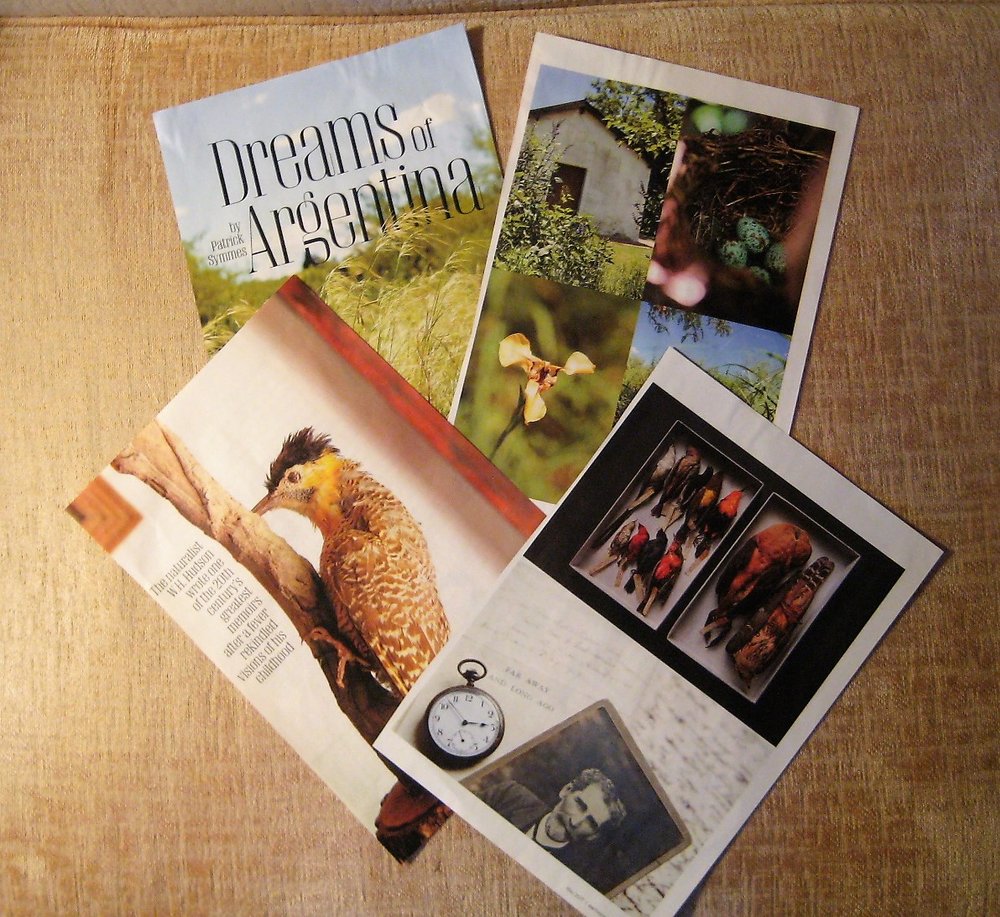 The Smithsonian Magazine for May 2017 ran an article about Henry Hudson who collected Latin American birds for the Smithsonian Institution while living a sparse life in Argentina. A bearded loner in threadbare clothes, he sought an income writing about the natural world for journals and the popular press – certainly an insecure way to make a living at best. He was part naturalist, part writer.
The Smithsonian Magazine for May 2017 ran an article about Henry Hudson who collected Latin American birds for the Smithsonian Institution while living a sparse life in Argentina. A bearded loner in threadbare clothes, he sought an income writing about the natural world for journals and the popular press – certainly an insecure way to make a living at best. He was part naturalist, part writer.
Surprisingly, his memoir Far Away and Long Ago has been used in Japan to teach English. According to the article, the measured pace, beautiful imagery, and universal themes of this book written 100 years ago have made the English language come alive for the Japanese students. Eventually, he lived out his life in England arguing with Charles Darwin about woodpeckers and becoming admired as a writer. Joseph Conrad, no slouch as a writer himself, was a friend, and novelist Morley Roberts called him “an eagle among canaries.” His London Times obituary deemed him “unsurpassed as an English writer on nature.”
For all of that, he suffered the rejection common to writers as he offered his work to magazines and journals. I loved one quote attributed to him, “It occasionally happened that an article sent to some magazine was not returned and always after so many rejections to have one accepted and paid for with a cheque worth several pounds was a cause of astonishment.” I share his pain, if not his English spellings. I can verify that following many rejections, from dismissive to gentle, having one accepted and paid for with a check worth several dollars remains a cause of astonishment.
For what it’s worth, if you are as intrigued with this naturalist writer as I was, his book is available for free from Amazon on Kindle.
Eating My Words
 I’m thinking, “Can’t live with them – can’t live without them,” never applied better than with computers. I remember the day I declared that I was glad I taught second grade and would never have to learn to use them. Ha! Five years later my principal “selected” me to go on an excursion to see how another school was using computers with second graders! Truthfully, I must say counting money and telling time became much easier to teach when the follow up to the lesson was free time for students on the computer with games that went “ka-ching” for right answers.
I’m thinking, “Can’t live with them – can’t live without them,” never applied better than with computers. I remember the day I declared that I was glad I taught second grade and would never have to learn to use them. Ha! Five years later my principal “selected” me to go on an excursion to see how another school was using computers with second graders! Truthfully, I must say counting money and telling time became much easier to teach when the follow up to the lesson was free time for students on the computer with games that went “ka-ching” for right answers.
Trying to remember when the real breakdown obsession for a personal computer came, I think it must have been when I purchased my first one and discovered that a very poor typist like me could correct mistakes with the backspace and keyboard without filling a page with Wite-Out. Not only that, but the machine would save as many copies as I wanted so I could choose the writing I liked best. The learning curve was steep with coaching that had to be dragged out of a son and son-in-law who kept saying, “Just learn what you need to know today. You don’t have to know it all.”
I’ve thought about this history over the last month when the bane of my existence has been a two-year-old PC that refused to upload updates and a computer geek telling me what drastic things could happen to all my files if updates weren’t in place. The kind of panic I’ve felt over losing those files and my fruitless automatic trip to turn on the computer first thing every morning have made me aware that I’ve come from never having to learn to use a computer to being dependent on it. Skipping a long and sad saga with geeks who could discipline that machine no more than I, (neither time-out nor corporal punishment helped), I did the next thing I had long been advised to do and bought a MacPro.
Would you believe that stubborn two-year-old PC would not talk to the MacPro to transfer files? Using the Migration Assistant exactly by the instructions, the PC screen said it was looking for the MacPro while the MacPro screen said it was looking for the PC. I said, “I can help you with that. You are staring at each other from three feet away.” The Apple geek figured a way around their blindness, noting as she worked, “You have a lot of files.” Well, yeah, and now I have them back. (They are also saved in the cloud!)
Everybody said, “Get an Apple. You’re going to love it!” Well, perhaps, but not yet. I’m back to yet another learning curve, and I’m eating my “never-learning-to-use-a-computer” words for breakfast.
Time for (Earth) School, Dewey Dew
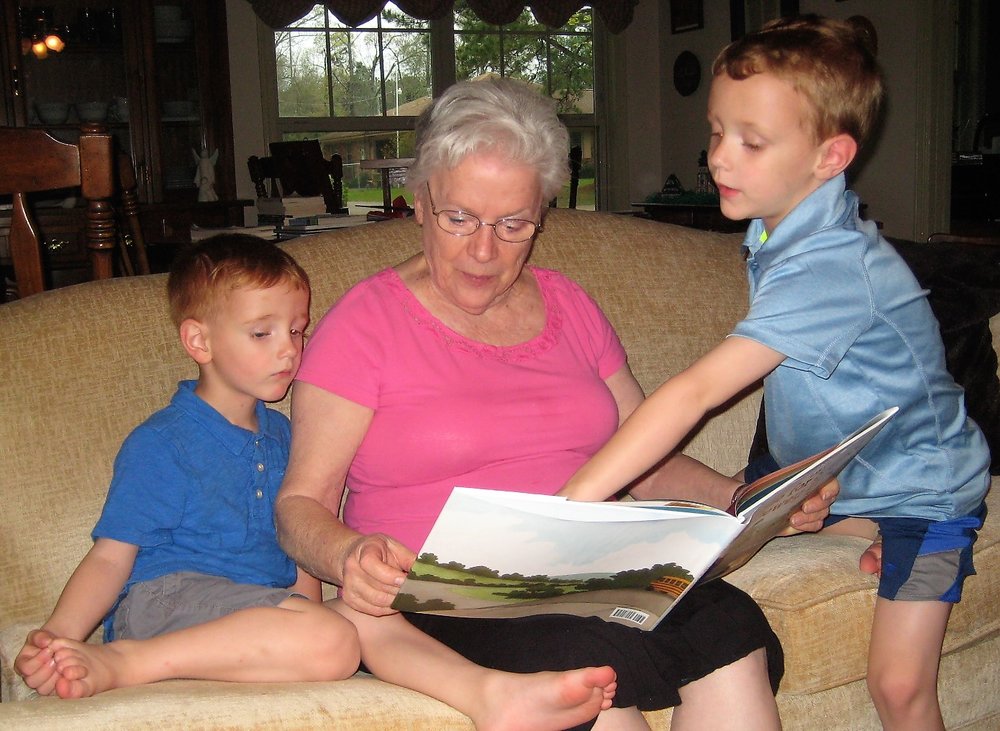 Starting to school can be a scary experience, even when you don’t have a name like Click Clack Waddle Dot Dewey Dew and even when you don’t have to travel all the way to Earth from Planet Eight Hundred Seventy-Two Point Nine. Dewey Dew does not want to attend Mrs. Brightsun’s School for Little Learners on Earth.
Starting to school can be a scary experience, even when you don’t have a name like Click Clack Waddle Dot Dewey Dew and even when you don’t have to travel all the way to Earth from Planet Eight Hundred Seventy-Two Point Nine. Dewey Dew does not want to attend Mrs. Brightsun’s School for Little Learners on Earth.
His mother insists he has to go and learn, but things get worse with classmates who have five fingers instead of three and stuff growing on top of their heads. You know you look different from them. The schoolroom has strange things called cubbies, and you must wear clothes that don’t fit right. All of that and Mrs. Brightsun keeps dinging on this space-shaped thing on her desk.
Just when you think things could not get worse, the children all line up in pairs to go outside so you find a corner to hide – that is until J. J. offers to be a friend. Funny thing is that your smile matches his, only much brighter. In the end, it’s all going to be “ootay.”
Time for (Earth) School, Dewey Dew by Leslie Staub was such a fun read for the grandmother (me) to share with two grandsons (Benjamin and Owen) who quickly figured out Dewey Dew’s alien words. I highly recommend it for preschoolers through first grade. I think it will be a repeated request that the adult will not mind reading over and over.
Roosters I Have Known
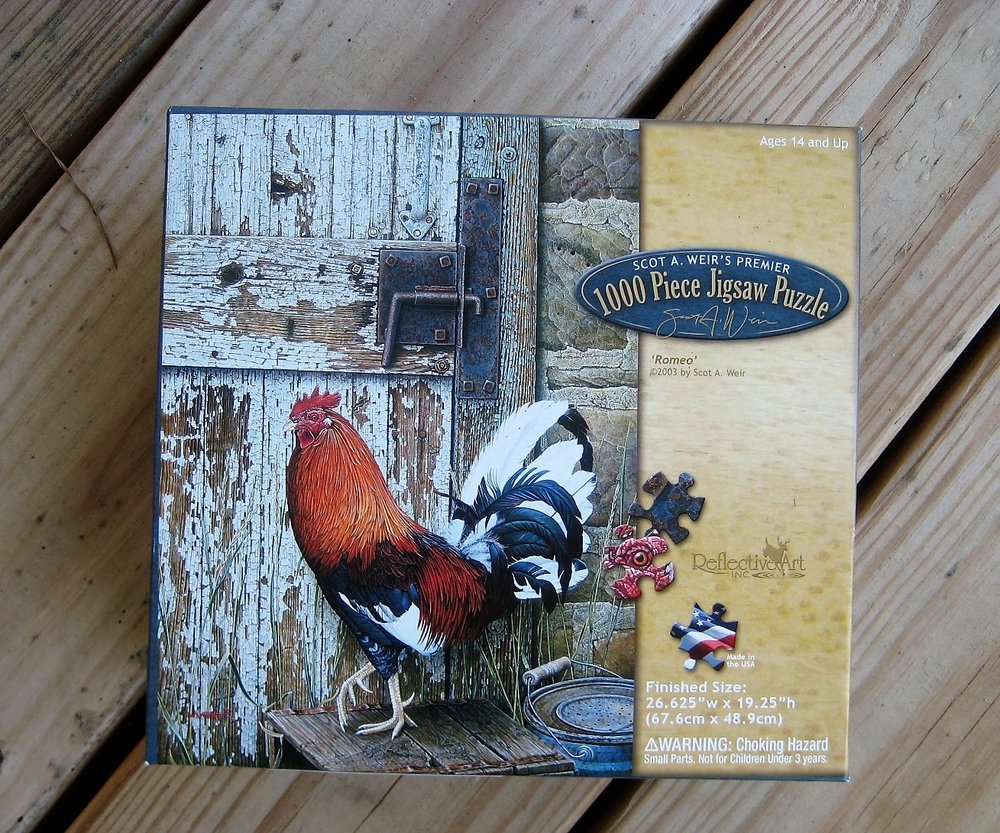 In case you wonder where I get blog ideas, this one came as our associate pastor wrapped up her scripture reading for last Sunday’s sermon with, “and then, the cock crew.” Memories of experiences with roosters came to mind although I did, indeed, follow her sermon about the significance of that particular cock.
In case you wonder where I get blog ideas, this one came as our associate pastor wrapped up her scripture reading for last Sunday’s sermon with, “and then, the cock crew.” Memories of experiences with roosters came to mind although I did, indeed, follow her sermon about the significance of that particular cock.
My first memory came when I was four and our family of five rented half a large house from the owner. She had a nasty mean rooster. Having been warned about his temperament, I was duly cautious. However, on this particular morning the bird was nowhere in sight as I ran out the back door to play. The sneaky varmint had hid himself behind a bush and flew out at me before I could get out the back steps, pecking at my bare legs, and scaring the bejabbers out of me.
I thought about the nights we slept at Papaw’s house, his big windows open for the night breeze in the hot summer. Morning was welcomed by his big rooster atop a fence post calling out his “Cock-a-Doodle-Doo.”
As Al and I discussed this over Sunday lunch, he recalled a rooster in his mother’s flock that chose to light on his head. He couldn’t remember whether there was any pecking involved. I had to mentally shrink him to a small boy and put hair back on his head to get that picture in my mind.
So, cocks or roosters, seem to have their place in life, but since my preschool days, I have chosen to give them a wide berth and admire them from a distance. That is, unless they turn up majestically as a favorite jigsaw puzzle.
My Name Is Venus Black
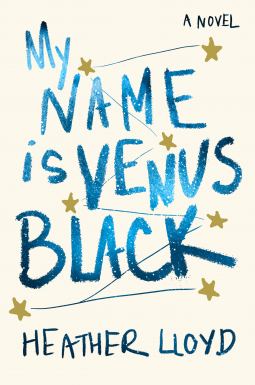 I love finding a debut novel such as My Name is Venus Black by Heather Lloyd that keeps me mesmerized and turning pages. Readers learn the reason behind Venus’s name in the prologue and learn whodunit in the first chapter. If they should decide there was little else of interest, they would be very wrong.
I love finding a debut novel such as My Name is Venus Black by Heather Lloyd that keeps me mesmerized and turning pages. Readers learn the reason behind Venus’s name in the prologue and learn whodunit in the first chapter. If they should decide there was little else of interest, they would be very wrong.
Soon after her arrest, Venus’s developmentally challenged brother is kidnapped for no apparent reason. Much of the story centers on Leo who has obsessive compulsive traits as well. Just when one is engrossed in Leo’s path, the author switches back to Venus and vice versa. The reader feels compelled to turn the next page.
The title hints that Venus will come back to her name after she takes an alias to hide her identity when she is released from prison. Other secondary characters include Inez, the addicted mother; Danny, who would like to be more than a friend; and Tony and Tessa who wind up taking Leo in when he is abandoned by the original kidnapper. These well-drawn characters flesh out a story of blame, love, loss, and a need for forgiveness.
The problems of Leo’s disability and Venus’s abuse add color and authenticity to the novel. Yet they do not call attention to the issues themselves so much as they add dimension to the tale and linger as things you think about when you are finished. I found the ending satisfying but hated for the book to be finished. Maybe Heather will write another one.
Sorghum Boycott?
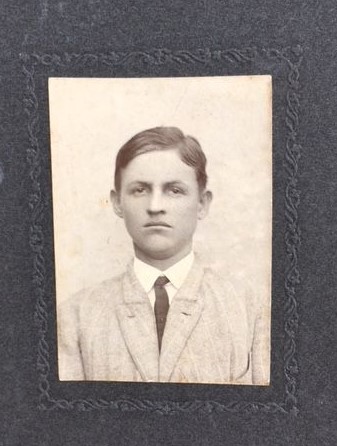 If Papaw happened to be looking down from heaven, I think he would have chuckled, too, but for a different reason than the CBS anchors. The CBS Morning Show repeated an amusing clip from Jimmy Kimmel’s show the night before. He got his laugh from his audience and the anchors by reporting China’s trade war threat to reduce their purchase of sorghum and then his guess as to what sorghum was. Gayle King, John Dickerson, and Alex Wagner knew no more than he did and could not google fast enough to get an answer.
If Papaw happened to be looking down from heaven, I think he would have chuckled, too, but for a different reason than the CBS anchors. The CBS Morning Show repeated an amusing clip from Jimmy Kimmel’s show the night before. He got his laugh from his audience and the anchors by reporting China’s trade war threat to reduce their purchase of sorghum and then his guess as to what sorghum was. Gayle King, John Dickerson, and Alex Wagner knew no more than he did and could not google fast enough to get an answer.
This farmer’s granddaughter was mostly amused by their lack of knowledge of this common variety of molasses, at least if you come from North Mississippi. To be fair, a quick check of my computer thesaurus yielded no synonyms. The Merriam Webster on my desk gives three: (1) any of an economically important genus (Sorghum) of Old World tropical grasses similar to Indian corn in habit but with the spikelets in pairs as a hairy rachis; esp: any of various cultivars (as grain sorghum or sorgo) derived from a wild form, (2) syrup from the juice of a sorgo that resembles cane syrup, (3) something cloyingly sentimental.
My grandfather grew the cane to make the pungent syrup – definition 2. If we were lucky enough to visit at harvest time, he’d give us stalks of the plant so we could chew the sweet juices from it. After a trip to the sorghum mill with his load of cane and a cooking down of the thin syrup until it was thick and strong, he had an abundance and was set for the coming year with enough to share with friends and family.
A pitcher of sorghum molasses graced his table at every meal. Since he was a dairy 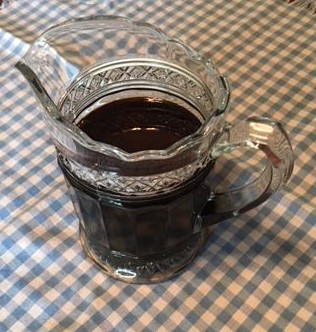 farmer, he poured it over his hot buttered biscuits in the morning and finished his other meals with a treat of the syrup over his hot buttered cornbread.
farmer, he poured it over his hot buttered biscuits in the morning and finished his other meals with a treat of the syrup over his hot buttered cornbread.
I have no idea why China wants our sorghum in the first place, but I’m guessing they are going with definition 1. Nor can I fathom why this is such a dire threat. Did Papaw miss out on something profitable? You can do your own checking about a “hairy rachis” since this foray into the dictionary leads me to conclude that we may all be ignorant, just about different things.
All the same, I’m chucking with Papaw at knowledgeable people who don’t know what sorghum is.
Educated
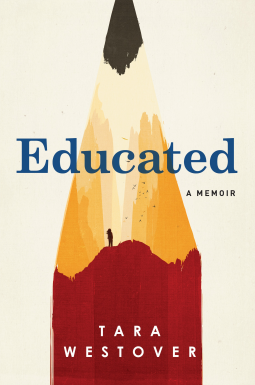 Tara Westover begins her memoir with a prologue description of the land on which she grew up as the wind whips her hair across her face and she looks upward to the mountain at the dark form of the Indian Princess. The princess, buried in the snow as if covered against the cold during the winter, reemerges each spring.
Tara Westover begins her memoir with a prologue description of the land on which she grew up as the wind whips her hair across her face and she looks upward to the mountain at the dark form of the Indian Princess. The princess, buried in the snow as if covered against the cold during the winter, reemerges each spring.
The mesmerizing memoir shows a young girl, one of seven siblings, first finding a way to endure with a father who stockpiles supplies and plans for shelter against the end times and a mother who is an unlicensed midwife collecting and selling homeopathic remedies. Little contact is allowed with the outside world except for their church where the parents’ ideas take Mormonism into an extreme form. From a young age, Tara works in dangerous conditions in her father’s scrap iron business with little regard for safety before a brother bullies her unmercifully with tacit parental approval as she begins to come of age.
Tara starts to find her way out of this situation through education, entering Brigham Young University without having been to public school and with little in the way of homeschooling that she has not taught herself. Yet she continues to be drawn back to family and the mountain with its Indian Princess. Her family leaves the reader head-shaking as they waffle between denial, rationalization, accusation, and occasional glimpses of something that could be taken for love if you look hard enough.
Some of the fascination of this memoir comes from watching which of the siblings get out of this restricting situation to become survivors and which ones buy into it and continue its hurtful pattern. I read an advance copy of the book that came out on February 20. I’m predicting you should read a copy if you want to join the book conversation that will have book lovers talking.
Olympic Reflections
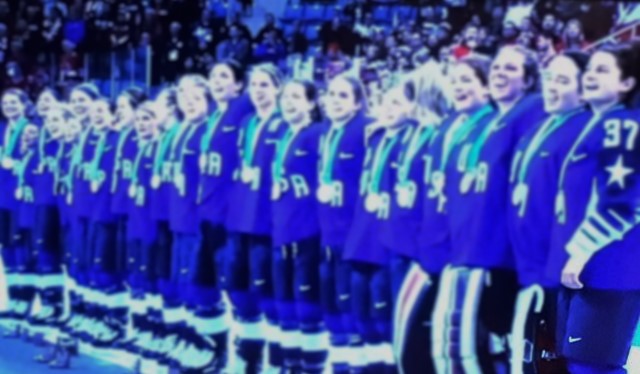 I’ve loved the unexpectedness in the Olympics for many years, relishing “the thrill of victory and the agony of defeat.” I have a love of ski jumping for its sheer beauty and of snowboarding for its risk that is spectacularly odd since I can mount a good bit of fear on a step stool putting books on the high shelf in the bookcase.
I’ve loved the unexpectedness in the Olympics for many years, relishing “the thrill of victory and the agony of defeat.” I have a love of ski jumping for its sheer beauty and of snowboarding for its risk that is spectacularly odd since I can mount a good bit of fear on a step stool putting books on the high shelf in the bookcase.
I have a big problem with commentators who insist on pushing the microphone and the questions at people like Nathan Chen and Marai Nagasu who have just failed in some way to deliver on their overpromised hype from the media. In their final long programs, Nathan’s skating was sheer beauty along with the six quads that he nailed. Marai, who could have yelled “foul” and gone home after being left off the last Olympic team, instead kept working and performed a near perfect program with a first triple axel. I love when athletes don’t take failure as the final answer but get back up and nail their challenges.
I may need to take back some words I said about curling being less entertaining that watching the dandelions push themselves up in my front yard. Evidently many people were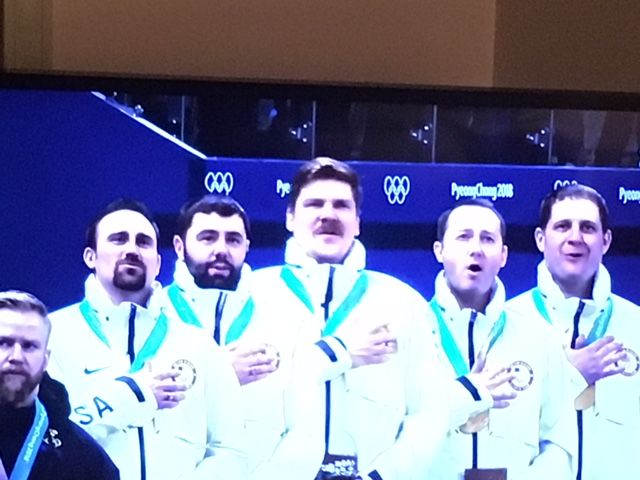 glued to the TV for curling matches that seemed to be ever-present. I did watch the gold medal match and enjoyed seeing all the USA team members actually singing at the Gold Medal Ceremony. When they got the mikes to do a bit of karaoke afterwards, it made me glad I had only seen and not heard them. The ladies’ hockey team also sang the anthem with great joy, but no mikes so I won’t critique their musicality.
glued to the TV for curling matches that seemed to be ever-present. I did watch the gold medal match and enjoyed seeing all the USA team members actually singing at the Gold Medal Ceremony. When they got the mikes to do a bit of karaoke afterwards, it made me glad I had only seen and not heard them. The ladies’ hockey team also sang the anthem with great joy, but no mikes so I won’t critique their musicality.
I think Red Gerard was my favorite character to come out of this Olympics with his “Aw, shucks!” kind of attitude. It was hard to believe that someone who made it to the Olympics would almost oversleep and have to borrow a too-big jacket. At seventeen, being the youngest male snowboarder ever to win gold didn’t seem to impress him. Answering questions about winning the gold medal and about what’s ahead for him, he majored on having fun on the snowboard and just wanting to get a good run every time. In fact, he advised other ambitious athletes to enjoy their sport rather than obsessing over coaches and such. I’m guessing he’s not going to want or need a sports psychologist.
So now I wait two years for the thrills and agonies of the summer Olympics with sports I enjoy even more than winter ones. I can only hope that somebody will teach the commentators some empathy and courtesy in the meantime.

